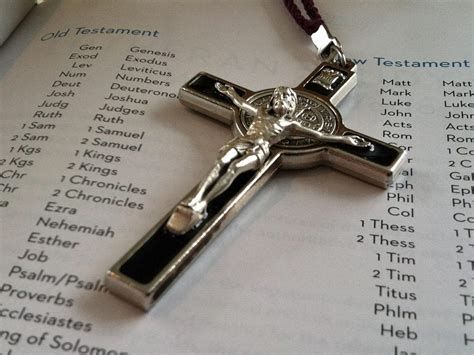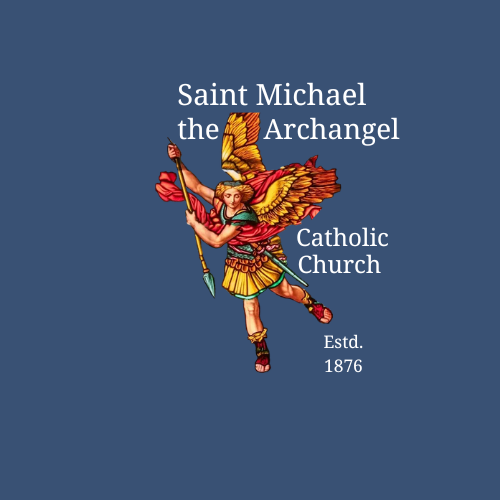Creation
God created mankind in his image; in the image of God he created them;
male and female he created them.
God blessed them... Genesis 1:27
Creation
Throughout the history of the Church, Christians have seen the universe as evidence of God’s existence. The order, harmony, and beauty of the world point to an intelligent Creator. The purposefulness of creation from the inanimate to human life similarly points to a wise Creator. The fact that all visible things come to be and eventually pass out of earthly existence points to an eternal Creator who has no beginning and no end and who sustains all that he has created (cf. CCC, no. 32).
The first line of the Bible says, “In the beginning when God created the heavens and the earth” (Genesis 1:1). The first three chapters of the Book of Genesis have shaped the religious thought of Jews and Christians; These three chapters must be read by anyone who wants to understand the meaning of the world and humanity.
Where do we come from? Where are we going? These two questions about our origin and our end are the underlying issues of the human search for meaning. These are the questions that the Bible helps us to answer.
Beginning with Genesis, all Scripture states the following truths in relation to God’s work of creation:
- God created the world out of his wisdom and love. Creation is not the result of blind fate or complete chance.
- God made the universe “out of nothing.” This means that the world is not a “part” of God or made from some pre-existing substance. The world depends on God for its existence; God is independent of his creation and distinct from it, even though creation is sustained in existence by his Providence: “In him we live and move and have our being,” as Saint Paul preached to the people of Athens (Acts of the Apostles 17:28).
- Creation reflects God’s goodness and wisdom. The creation story in Genesis affirms the goodness of creation: “God looked at everything he had made, and found it very good” (Genesis 1:31). Because the universe is destined for the human family, whom he calls to a personal relationship with himself, it is ordered in a way that allows the human intellect to perceive God’s hand working in and through it. As the Dogmatic Constitution on Divine Revelation (Dei Verbum) of the Second Vatican Council teaches, “God who creates and conserves all things by his Word (see John 1:3), provides men with constant evidence of himself in created realities” (DV, no. 3; see Romans 1:19-20).
-United States Catholic Catechism for Adults
What does the Church teach about evolution?
Thus says God, the LORD, who created the heavens and stretched them out, who spread out the earth and its produce, Who gives breath to its people and spirit to those who walk on it: (Isaiah 42:5)
Catholics may believe in theories of evolution as long as they are not incompatible with Catholic teaching on Creation such as the world having been created according to the plan of God, the descent of all human beings from a single set of first parents, and that every soul is created by an immediate act of God.
In many academic and popular circles today, there is debate between "creationists" and "Darwinists," i.e., between those who say that God created the world in six days and those who hold to the evolutionary theories developed by the nineteenth-century natural historian Charles Darwin. The question usually revolves around which version of events should be taught in schools.
The first thing the Bible tells us is that God created the heavens and the earth, which is one of the reasons that the Catholic Church teaches that God created the whole universe. Respecting both science and Revelation, the Church recognizes that there is no necessary contradiction between the teachings found in the account of creation in Genesis and certain theories of evolution. The biblical creation narratives are largely symbolic, and it is not necessary to interpret them literalistically: God could very well have accomplished his process of creation through an evolutionary method. As long as God is seen as the origin of all life and matter, holding the basic tenets of evolution remains a viable point of view.
One distinction, however, is important: The Church permits belief in the evolution of the body, but not the evolution of the soul. The soul did not "evolve" but rather was an instantaneous gift of God, who infused Adam and Eve with their souls. (Cf. Catechism of the Catholic Church, 366)
What the Book of Genesis does intend to teach with regard to evolution is that God created everything that exists according to his design, whether this process took six days or trillions of years.
At a certain point in time, God infused the first human man and woman with a soul, and all human beings are descended from these original parents. (Cf. CCC 70)
The Catechism of the Catholic Church, paragraph 366 addresses this question.
-The Didache Bible
God's Self Revelation
Revelation is the self-disclosure of the living God and his plan to save us. Revelation shows us that God desires to have an intimate and loving relationship with everyone.








